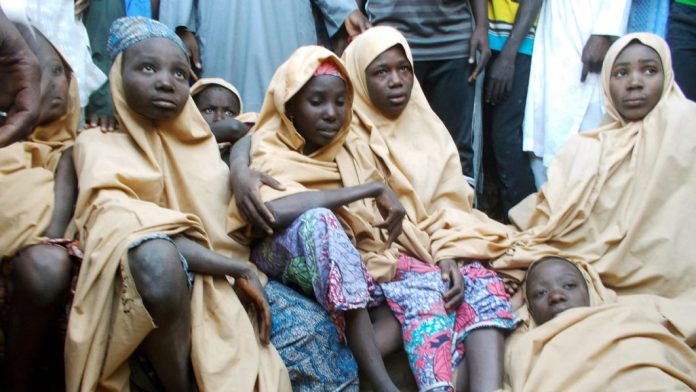Nigerian strategists who believe that it is better to jaw-jaw than to war-war will be getting the thumbs-up now in Abuja. This is because Boko Haram jihadists have released 76 of the 110 schoolgirls who were abducted from the town of Dapchi, Yobe state, last month.
In a statement in Abuja on Wednesday, the Information and Culture Minister, Lai Mohammed said “the 76 are those who have been documented”, assuring that the release of the abducted students “is ongoing”.
Alhaji Mohammed said the schoolgirls were returned to Dapchi by Boko Haram early Wednesday morning following negotiations between the Nigerian government and the militant group. “The girls were released around 0200 GMT, through back-channel efforts and with the help of some friends of the country,” he said, without elaborating.
The number of freed girls may increase “because the girls were not handed over to anyone but dropped off in Dapchi,” he said. Bashir Manzo, who heads a parents’ support group in Dapchi, earlier told newsmen that the girls had been returned.
The Dapchi kidnapping on February 19 conjured painful memories of a similar abduction in Chibok, Borno state, in April 2014, when more than 200 girls were taken.
That brought Boko Haram – whose name translates from Hausa as “Western education is forbidden – global notoriety and condemnation at a time when it controlled large bulks of territory in Nigeria’s Northeast zone.
It will be recalled that the Nigerian leader, Muhammadu Buhari, had told the outgoing US Secretary of State, Rex Tillerson, who visited Nigeria earlier this month, that the federal government was pursuing the release of the school girls through negotiations.


















